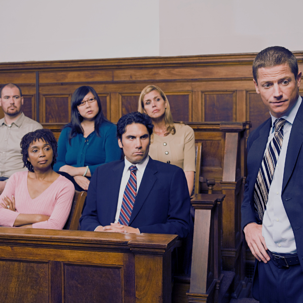The right to a jury trial is one of the fundamental rights afforded to defendants in criminal cases. The jurors must not have a prior connection to any of the people involved in the case, and, to the greatest extent possible, they should not be familiar with news reports and social media posts about it or about the people connected to it. The court cannot convict a defendant unless the 12 unbiased jurors return a unanimous guilty verdict after seeing and hearing evidence that was admissible in court. In other words, in order to avoid a trial ending in a conviction, it is sufficient to persuade one juror out of 12 that there is reasonable doubt about your guilt.
There is a long way between one juror with reasonable doubt and an acquittal, though. A Texas criminal defense lawyer can help you exercise your right to a fair trial and cast doubt on the prosecution’s case against you.
Jury Unanimity in Federal and State Cases
In federal criminal cases, a unanimous verdict is required before the court can convict a defendant. States have the right to set their own laws about jury unanimity, but Texas, like most other states, also requires a unanimous vote for a guilty verdict in order to convict a defendant at trial. A unanimous guilty verdict yields a conviction, and a unanimous not guilty verdict results in an acquittal, but if the jury cannot reach a unanimous agreement, the court declares a mistrial.
In civil cases, Texas requires five-sixths of the jurors to vote against the defendant in order for the court to rule against him or her. This is significant because an accuser has the right to sue you in civil court related to allegations of fraud or sexual assault, and the plaintiff can win the civil case even if the criminal court acquitted you (or if you pleaded no contest). The standard of evidence in civil cases is a preponderance of the evidence, which is much easier for plaintiffs to achieve than the “beyond a reasonable doubt” standard of evidence required in criminal cases.
What Happens If Your Case Results in a Mistrial?
If the court declares a mistrial, your case can end in any of several ways. The prosecution may decide to drop the charges against you. If it does not, then you have the right to another trial; you are still presumed innocent after a mistrial. While the prosecution and the defense are preparing for a second trial, some defendants decide to plead guilty or no contest before the second trial happens, especially if the prosecution offers a plea deal. Likewise, the prosecution may decide, in the course of preparing for the second trial, that it does not have enough evidence to convict you, so it might drop the charges.
Contact the Law Office of Patrick J. McLain, PLLC About Criminal Defense Cases
A Dallas criminal defense lawyer can help you establish reasonable doubt about your guilt in the minds of some or all of the jurors. Contact the Law Office of Patrick J. McLain, PLLC,to discuss your case.

